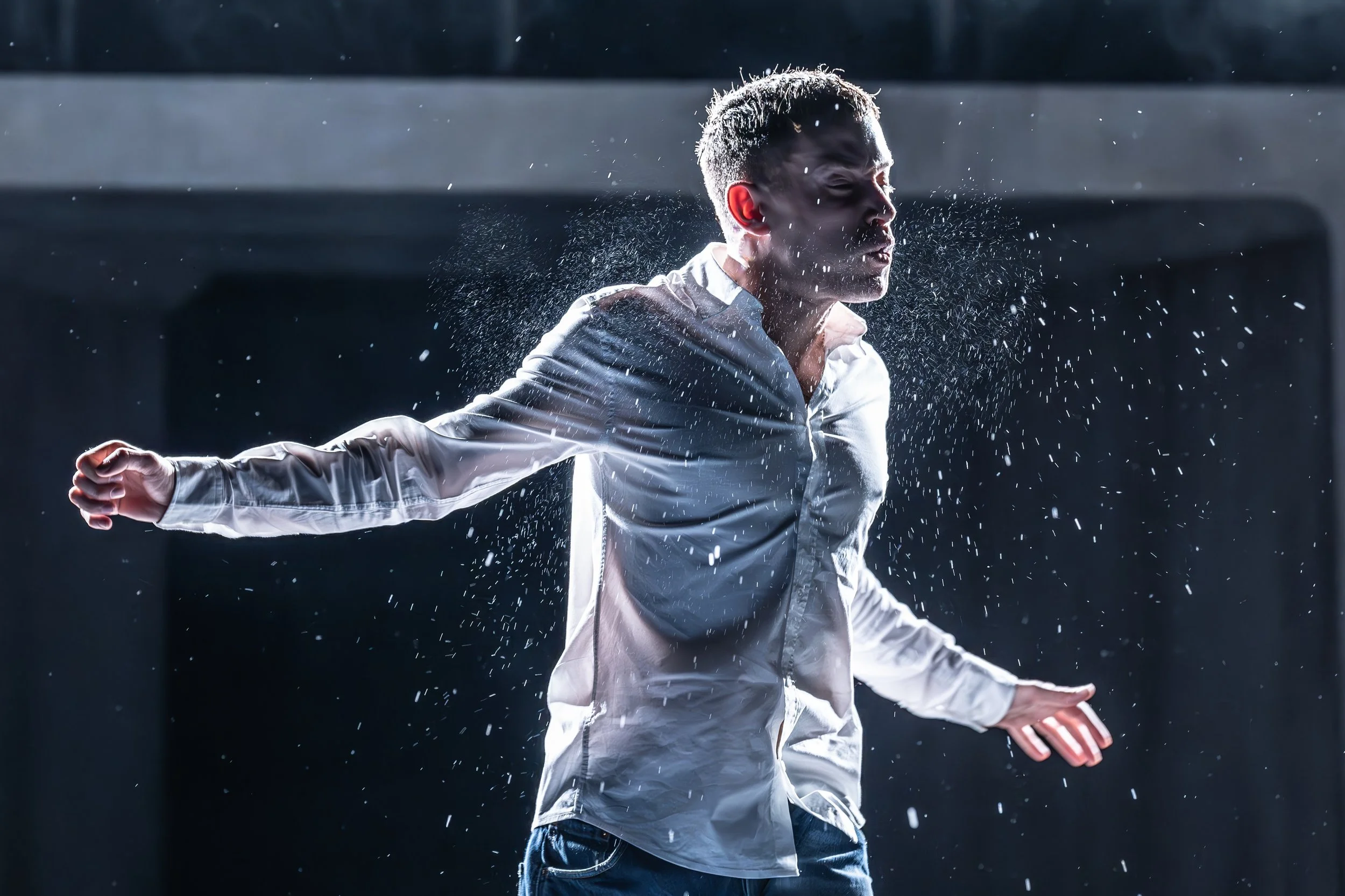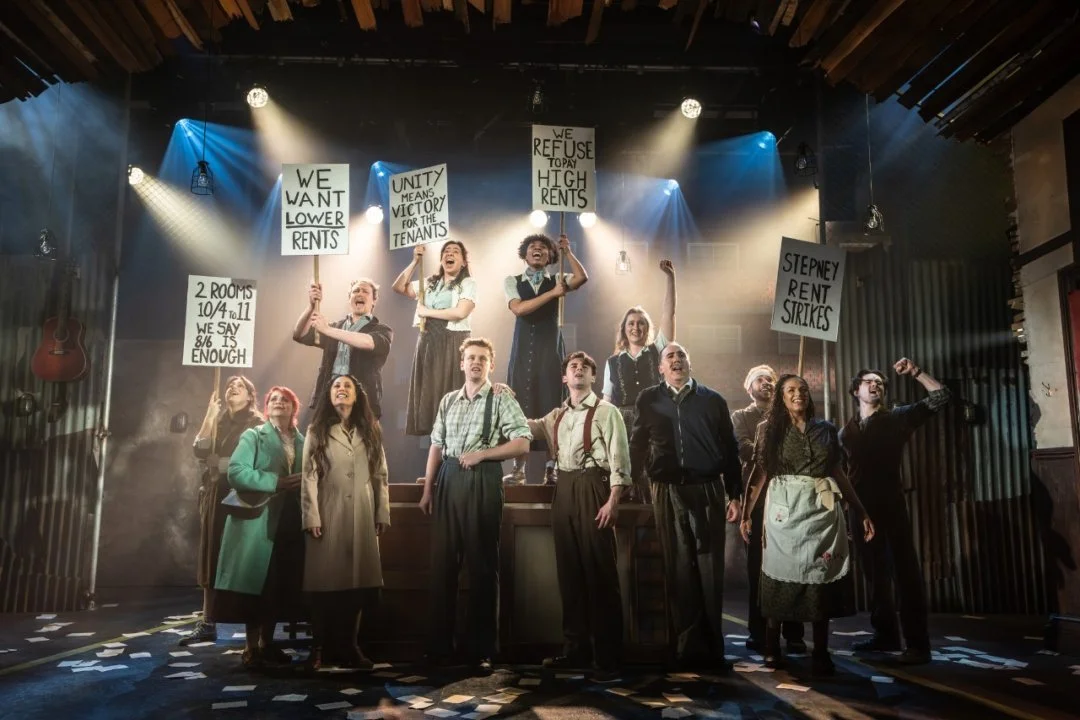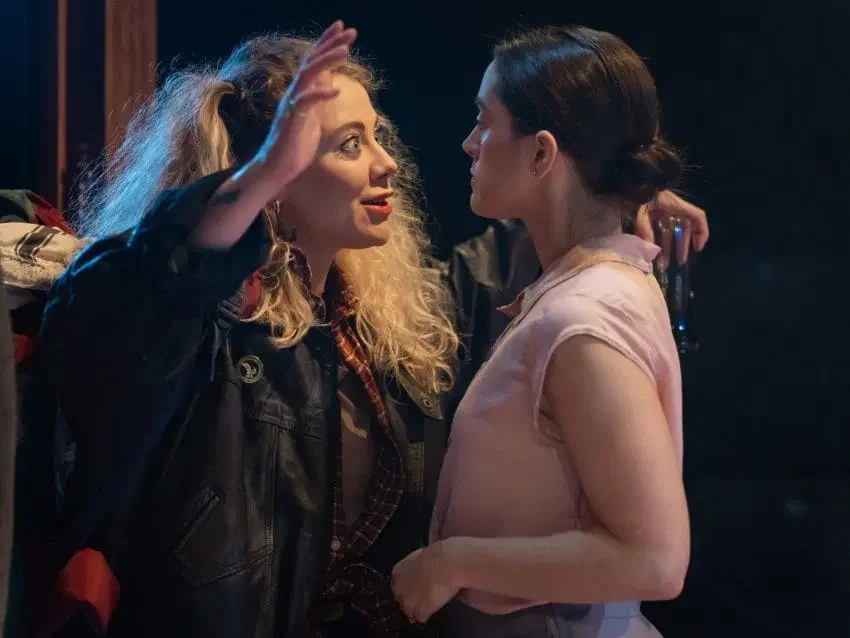Punch at the Apollo Theatre Review
David Shields as Jacob Dunne in Punch. Photo by Marc Brenner (1).jpg
Written by ZiWen Gong for Theatre & Tonic
Disclaimer: Gifted tickets in exchange for an honest review
Please note: This production is recommended for 12+ and contains strong language, references to violence, death, bereavement, alcohol and substance misuse, and mental health, knives on stage and is based on real life people and events. There is loud music and flashing lights throughout, strobe lighting, sudden noises and theatrical smoke and fire/flame effects.
Can we forgive those who hurt the ones we love? Following the success of Dear England, James Graham's other work Punch, directed by Adam Penford, transfers to the West End after performances at Nottingham Playhouse (read our review here) and the Young Vic, once again compelling audiences to reflect on this question.
This work is based on a true story. On a late Saturday night in Nottingham, a teenager named Jacob Dunne received a call from a friend telling him they had gotten into some trouble. Without knowing exactly what was going on, Jacob, wanting to show his bravery and capabilities in front of his friends, threw a punch at a complete stranger. The man fell to the ground, and Jacob ran away. Nine days later, the man Jacob had attacked died. His name was James Hodgkinson, and he was only 28 years old. Jacob served 14 months in prison, and after his release, he learned that James’s parents (Joan and David) wanted to ask him why he had thrown that punch, along with much more...
The stage design and the use of lighting and sound effects undoubtedly add a unique charm to the production. On stage (Anna Fleischle), it looks as if a concrete bridge has been constructed, with what seems to be part of a tunnel underneath. A few chairs are placed at the front, and with projections at the back of the stage, the setting for the story of Punch comes to life. The sound design (Alexandra Faye Braithwaite) is dynamic and helps drive the rhythm of the narrative. I especially like the use of lighting (Robbie Butler). When the fireworks are captured in the lights above the stage, accompanied by the sound of their bursts, it feels as though I am witnessing the New Year’s night sky through Jacob’s eyes. And when the golden light washes over the stage and the faces of the audience, I, too, can sense the quiet and sacred atmosphere of the church.
The story begins with a first-person narration from the protagonist, guiding the audience into Jacob’s perspective. Although these narrations continue throughout the play, they often broadly summarise events, which creates a sense of emotional distance, as if, despite hearing Jacob speak at length, we’re still not fully close to him. This even makes the first act feel slightly long at times. In addition, because much of the dialogue consists of characters standing and speaking directly to one another on stage, certain scenes can appear somewhat static. However, Act Two immediately draws the audience into the emotional core of the story.
Everyone’s performance adds depth and brilliance to the production. David Shields’s portrayal of Jacob captures both the naive cruelty and the vulnerability of adolescence. It’s hard not to empathise with him, especially when you see his eyes suddenly well up with tears. Aside from Shields, each actor takes on multiple roles, yet every character is clearly distinguishable. Because each actor’s reactions feel so genuine and compelling, there are moments when they all share the stage, and it’s hard to know where to look. Among them, the standout is Julie Hesmondhalgh as Joan. Her sorrow is quiet and restrained, yet almost deafening in its emotional weight; yet, even so, she still brings a subtle touch of humour to her view of life.
Of all the scenes, my favourite is the moment when Jacob meets Joan and David for the first time. All three of them are clearly trying to hold back their emotions, yet those feelings inevitably spill over. As the intermediary, Nicola (Shalisha James-Davis) is like a neutraliser, bringing a touch of lightheartedness to the atmosphere. In this scene, small details like Jacob accidentally knocking over a glass of water, Joan asking if anyone would like a biscuit, and David trying to respond with his mouth full make the moment feel incredibly natural and authentic.
Objectively speaking, what Jacob did was terrifying and unforgivable. But as I watched the story of these characters unfold on stage, I began to understand him and couldn’t help but become moved by the moments of genuine connection between them. Forgiveness is never a simple answer, nor is the decision not to forgive. But Punch, as a play that presents such a wide range of honest, deeply human emotions while prompting the audience to reflect, has already succeeded in what it sets out to do.
Punch runs at Apollo Theatre until 29th November 2025.
★★★★
















